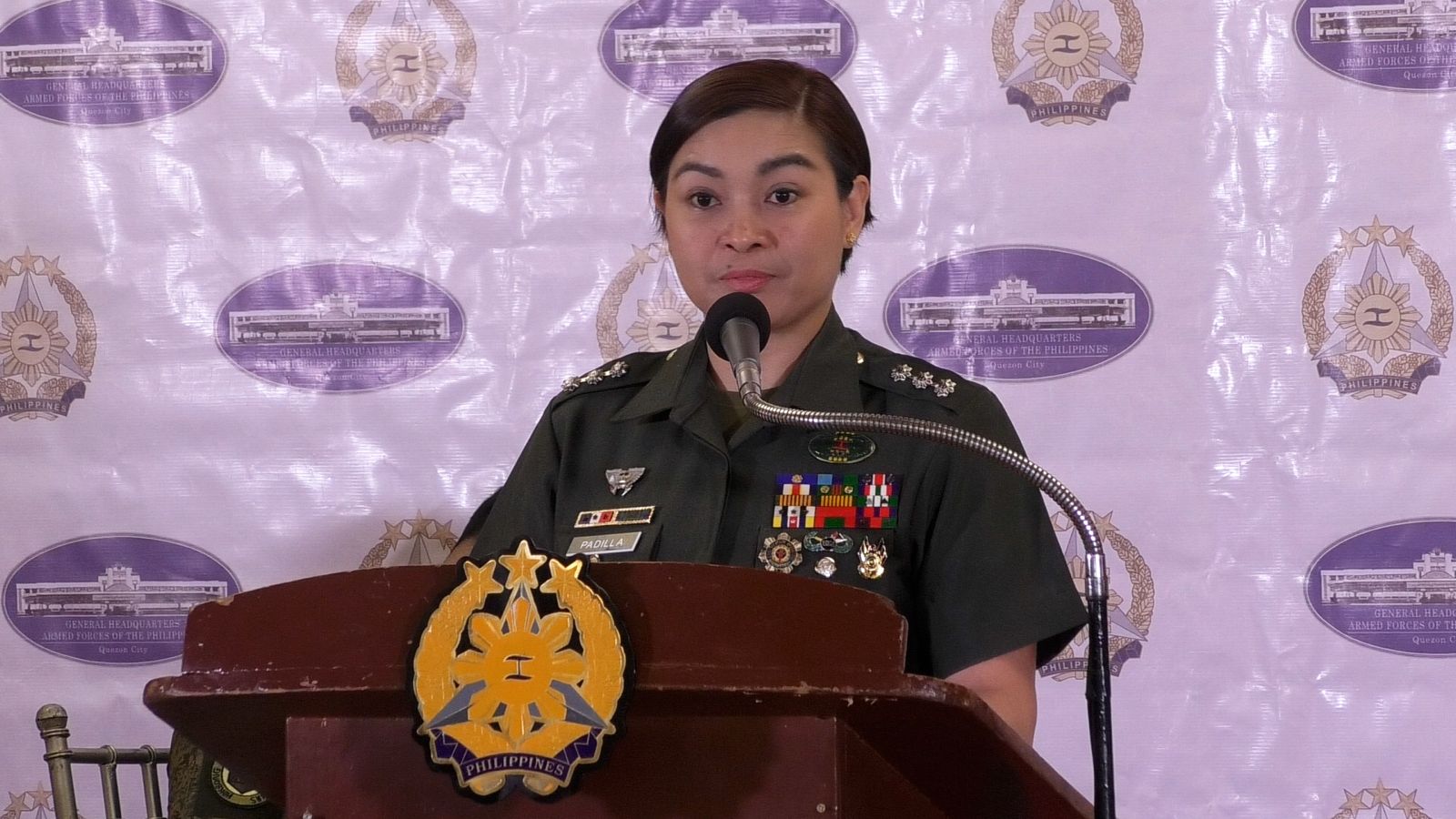West PH Sea: AFP bolsters camp security amid potential Chinese espionage

AFP spokesperson Francel Margareth Padilla
MANILA, Philippines — The Armed Forces of the Philippines (AFP) said on Tuesday that security measures in its camps are “more heightened” now following alleged espionage activities by a Chinese national.
AFP spokesperson Francel Margareth Padilla stated that “hundreds” of locations, including military camps and Enhanced Defense Cooperation Agreement (EDCA) sites, were allegedly surveilled by the suspected spy.
Padilla noted that fortification of security in camps is part of the AFP’s standard operating procedure.
READ: Chinese engineer, 2 Filipinos nabbed for espionage targeting PH security
“But over and above that, with our internal security protocols, our entry of visitors inside camps is heightened,” Padilla said in a regular AFP briefing in Camp Aguinaldo.
Padilla, when pressed as to what a “more heightened” alert meant, told INQUIRER.net: “The AFP across all military camps, are implementing stricter access controls, increased patrols, enhanced monitoring of perimeters, and reinforced information security protocols.”
READ: Filipino wife of detained Chinese: He’s not a spy
“These measures aim to ensure the safety of our facilities and personnel while maintaining the integrity of our operations,” she added in a text message.
On Jan. 17, Deng Yuanqing and two Filipinos were arrested for allegedly conducting illegal surveillance and spying activities targeting military installations and power facilities in the country.
Padilla said of this activity: “This is unauthorized foreign intelligence surveillance and reconnaissance activity that was conducted; and what we can point out is that these are crucial features that have been found in the data.”
However, Deng’s wife denied that her husband was a spy, but Padilla said the AFP findings still stand.
“The Armed Forces of the Philippines understands her concern, being, of course, emotionally involved, being a wife, a mother,” she said. “But for the Armed Forces of the Philippines, we look into the evidence-based results of this investigation, and anything in our power to help in aiding that the truth come out from this, we will do in the AFP.”
This follows China’s repeated objections to the Enhanced Defense Cooperation Agreement (EDCA) sites in the country.
The EDCA sites are located within Philippine military bases where U.S. troops and equipment are permitted access.
Two of the nine EDCA sites are in coastal towns of Cagayan, facing Taiwan—a self-ruled island that China regards as a renegade province subject to reunification.
Additionally, two EDCA sites are in Balabac town and Puerto Princesa City in Palawan, which faces the West Philippine Sea. Beijing claims sovereignty over nearly the entire South China Sea, including most of the West Philippine Sea, despite this claim being invalidated by an arbitral ruling in July 2016.
This landmark ruling resulted from a case filed by Manila in 2013, a year after a tense standoff with Beijing over Panatag (Scarborough) Shoal, whose lagoon China now effectively controls.
For comprehensive coverage, in-depth analysis, visit our special page for West Philippine Sea updates. Stay informed with articles, videos, and expert opinions.


















